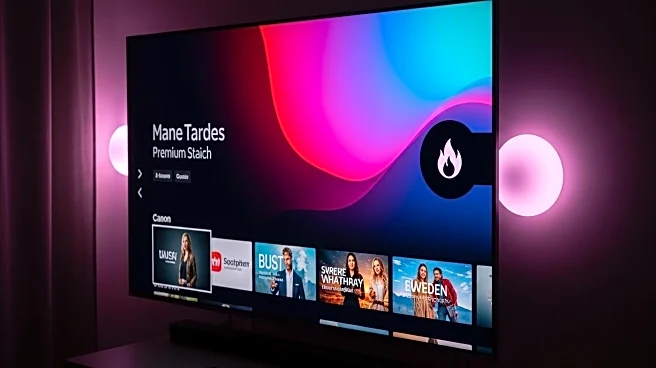What is the story about?
What's Happening?
Amazon has significantly reduced the prices of its Fire TV Stick models during an early October Prime Day event, posing a competitive challenge to other streaming device manufacturers like Roku and Google Chromecast. The Fire TV Stick HD is now priced at $17, the Fire TV Stick 4K at $24, and the Fire TV Stick 4K Max at $39, marking record lows for these products. These devices offer various features, including Alexa Voice Remote and support for multiple streaming services, enhancing the user experience. Amazon's ability to leverage its e-commerce platform and supply chain to influence pricing is a strategic move to capture a larger share of the streaming device market.
Why It's Important?
Amazon's aggressive pricing strategy for its Fire TV Sticks could disrupt the streaming device market, pressuring competitors like Roku and Google Chromecast to reconsider their pricing models. This move may lead to increased consumer adoption of Amazon's streaming ecosystem, potentially boosting its market share and influence in the streaming industry. The price cuts also reflect Amazon's broader strategy to integrate its services and products, enhancing customer loyalty and engagement. For consumers, the reduced prices offer affordable access to advanced streaming technology, potentially accelerating the shift from traditional cable to streaming services.
What's Next?
Competitors in the streaming device market may respond to Amazon's pricing strategy by offering discounts or enhancing their product features to maintain market share. The ongoing price competition could lead to innovations in streaming technology and user experience, benefiting consumers. Additionally, Amazon's focus on expanding its streaming ecosystem may result in further integration of its services, such as Prime Video and Alexa, into its devices, enhancing functionality and user engagement.
Beyond the Headlines
Amazon's pricing strategy highlights the influence of major e-commerce platforms on consumer electronics markets. It raises questions about market dynamics, competition, and the potential for monopolistic practices. Long-term, Amazon's approach could lead to shifts in consumer behavior, with increased reliance on integrated ecosystems for entertainment and smart home management.
















